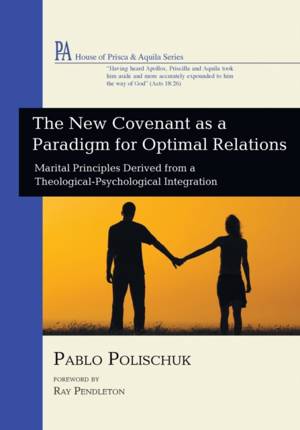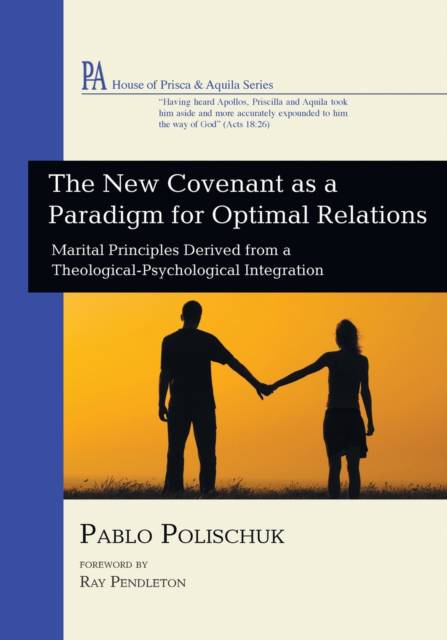
Bedankt voor het vertrouwen het afgelopen jaar! Om jou te bedanken bieden we GRATIS verzending (in België) aan op alles gedurende de hele maand januari.
- Afhalen na 1 uur in een winkel met voorraad
- In januari gratis thuislevering in België
- Ruim aanbod met 7 miljoen producten
Bedankt voor het vertrouwen het afgelopen jaar! Om jou te bedanken bieden we GRATIS verzending (in België) aan op alles gedurende de hele maand januari.
- Afhalen na 1 uur in een winkel met voorraad
- In januari gratis thuislevering in België
- Ruim aanbod met 7 miljoen producten
Zoeken
The New Covenant as a Paradigm for Optimal Relations
Marital Principles Derived from a Theological-Psychological Integration
Pablo Polischuk
€ 66,95
+ 133 punten
Uitvoering
Omschrijving
The New Covenant as a Paradigm for Optimal Relations regards the New Covenant primarily as a gracious and merciful redemptive deal, springing from God's unilateral, unconditional, and proactive initiative. The New Covenant is adopted as representing both a salvific and an exemplary paradigm that displays God's gracious and merciful ways toward his children. Ten discrete, yet interwoven principles are extracted from, interpreted, and abstracted from Scriptures pertaining to the promised New Covenant. These principles apply to those who, as dearly beloved children, are invited to imitate God's loving ways. God's manner of love defines the foundational basis from which the author derives and elaborates the propositions that guide the considerations pertaining to thoughts, feelings, motivations, and behaviors that enter into play in relational transactions. In terms of style, an architectural design permeates the content of this book, offering and encompassing a metacognitive view of God's covenantal ways: a top-down perspective that applies to bottom-up endeavors of relational nature. The challenges posed by our cultural, postmodern trends--devoid of absolute principles and lacking a moral compass--are countered and addressed by the author in insightful fashion, offering theologically-based guidelines integrated to sound psychological principles, applicable to psychotherapeutic and counseling endeavors as well as to pastoral care.
Specificaties
Betrokkenen
- Auteur(s):
- Uitgeverij:
Inhoud
- Aantal bladzijden:
- 392
- Taal:
- Engels
- Reeks:
Eigenschappen
- Productcode (EAN):
- 9781498226127
- Verschijningsdatum:
- 7/10/2016
- Uitvoering:
- Paperback
- Formaat:
- Trade paperback (VS)
- Afmetingen:
- 178 mm x 251 mm
- Gewicht:
- 725 g

Alleen bij Standaard Boekhandel
+ 133 punten op je klantenkaart van Standaard Boekhandel
Beoordelingen
We publiceren alleen reviews die voldoen aan de voorwaarden voor reviews. Bekijk onze voorwaarden voor reviews.









